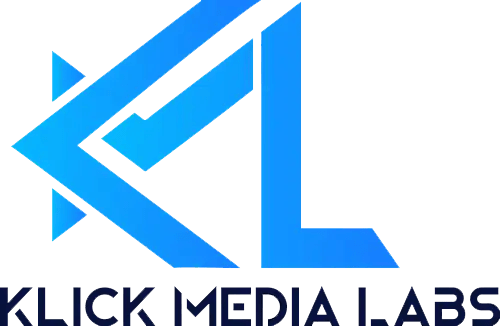In the ever-evolving landscape of digital marketing, staying abreast of Google’s algorithm updates is paramount for success. These updates significantly impact SEO, PPC, and SMM strategies, shaping how businesses optimize their online presence. From recent shifts like the inclusion of FAQs to broader changes, this comprehensive guide explores the dynamic effects of Google updates on these crucial areas of digital marketing.
Introduction
Google, as the dominant search engine, continually refines its algorithms to enhance user experience and deliver accurate results. These changes ripple across the digital marketing sphere, compelling SEO, PPC, and SMM professionals to adapt their strategies for optimal results.
The Evolution of Google’s Algorithm Updates
Over the years, Google’s algorithm updates have evolved from simple adjustments to complex, machine-learning-driven changes. Understanding this evolution helps us grasp the impact these updates have on digital marketing strategies.
Google Algorithm Updates and SEO
Google’s Focus on User Intent: The Core of SEO Transformation
One of the most profound shifts in recent Google updates revolves around user intent. The latest updates prioritize understanding user intent and rewarding websites that provide valuable, relevant, and authoritative content. The algorithms are now more adept at deciphering user queries and delivering results that match their intentions. Integrating SEO Strategy for Online Visibility within high-quality content is essential for improved rankings while providing in-depth, relevant information.
Structured Data and FAQs: Rising to Position Zero
Structured data, in the form of rich snippets, has become a game-changer in SEO. Google’s emphasis on structured data has led to the rise of rich snippets, including FAQs. Websites incorporating FAQ sections around key terms can enhance their visibility and capture position-zero rankings, driving organic traffic, the coveted spot above traditional search results. This not only boosts organic traffic but also establishes authority by addressing users’ questions directly.
Mobile-First Indexing: Shaping the Mobile Landscape
With mobile usage skyrocketing, Google’s mobile-first indexing ranks websites based on their mobile version. Prioritize responsive design, fast-loading pages, and seamless mobile experiences to satisfy both users and search engines.
Google Algorithm Updates and PPC: Navigating PPC Realities in the Algorithmic Era
Pay-Per-Click (PPC) advertising has undergone significant transformations as Google updates continue to influence ad rankings, costs, and user experiences
Quality Score and PPC Strategy for ROI
Google updates impact Quality Scores, influencing ad rank and cost-per-click (CPC). Quality Score remains a vital metric in PPC campaigns. Crafting relevant ad copies and targeted landing pages aligns with Google’s Quality Score criteria as a PPC Strategy for ROI. Google’s updates have made it even more important, directly impacting ad positions and costs.
Ad Extensions and Click-Through Rates
Google’s updates emphasize ad extensions, enhancing the visibility of your ads and driving higher click-through rates (CTR). Use site links, callouts, and structured snippet extensions to stand out. With the right extensions, ads become more informative and clickable.
Audience Targeting Precision
Recent updates have enhanced audience targeting options, allowing PPC campaigns to reach specific demographics and interests. Advertisers can now tailor their campaigns to reach specific demographics, interests, and even behaviors. This personalization boosts the efficiency of your campaigns, enabling businesses to deliver relevant messages to the right audience segments.
Google Algorithm Updates and SMM: SMM in the E.A.T. and Engagement Era
Social Media Marketing (SMM) has embraced Google’s emphasis on E.A.T. while leveraging engagement metrics to bolster its online presence.
E.A.T. Integration and Social Media: Establishing Trust Through Content
Google’s E.A.T. (Expertise, Authoritativeness, Trustworthiness) criteria are no longer confined to SEO; also extend to SMM as well. Consistent, reliable, and valuable social media content positions your brand as an industry authority. You can also connect with Professionals Online for helping you out with this.
Engagement Amplification: Impact Beyond Social Media
Engagement metrics on social media platforms indirectly influence SEO. Social signals, such as likes, shares, and comments, have an indirect impact on SEO. When content receives significant likes, shares, and comments, it signals relevance and popularity, potentially boosting organic search visibility. Generate buzz around your content to potentially enhance its organic search visibility. This intertwining of SMM and SEO underscores the interconnectedness of digital strategies.
User Experience and Social Commerce:
Google updates emphasize user experience, aligning with the trend of social commerce for Results-Driven Online Marketing. Optimize your social profiles for seamless shopping experiences by integrating related keywords strategically.
Partnering for Success: Expert Guidance
Amidst these changes, enlisting the expertise of digital marketing consultants proves invaluable. Integrated marketing services that span SEO, PPC, and SMM strategies can help businesses remain at the forefront of online visibility and engagement. By staying informed and agile, businesses can leverage Google’s algorithm updates as opportunities for growth and innovation, securing their digital presence in the ever-evolving digital landscape.
Conclusion
As Google algorithm updates continue to shape the digital marketing landscape, understanding their impact on SEO, PPC, and SMM is crucial. Adapting to these changes and incorporating trending strategies, such as structured data for FAQs, empowers businesses to maintain their online presence, visibility, and relevance in 2023 and beyond. By partnering with expert digital marketing consultants, businesses can navigate these updates confidently and achieve their marketing goals.




